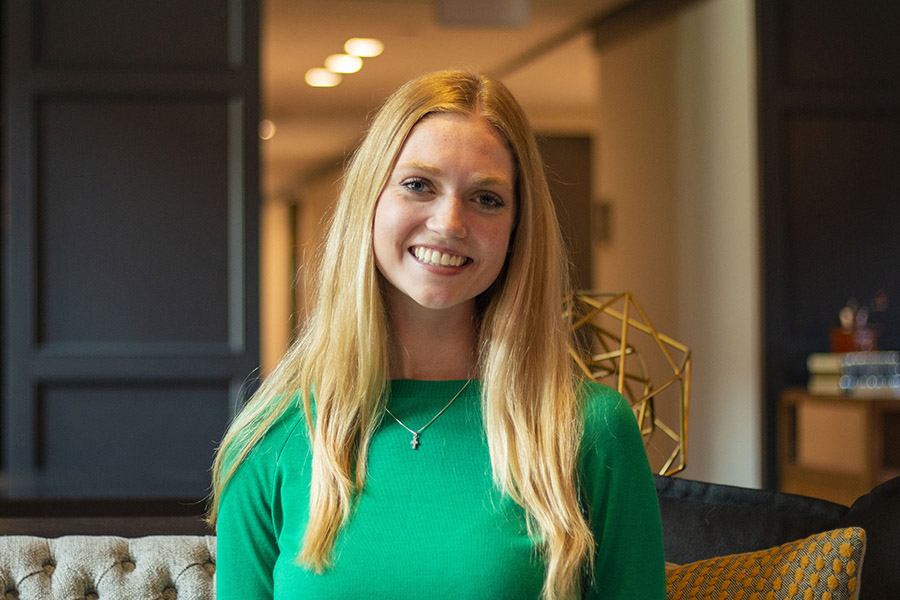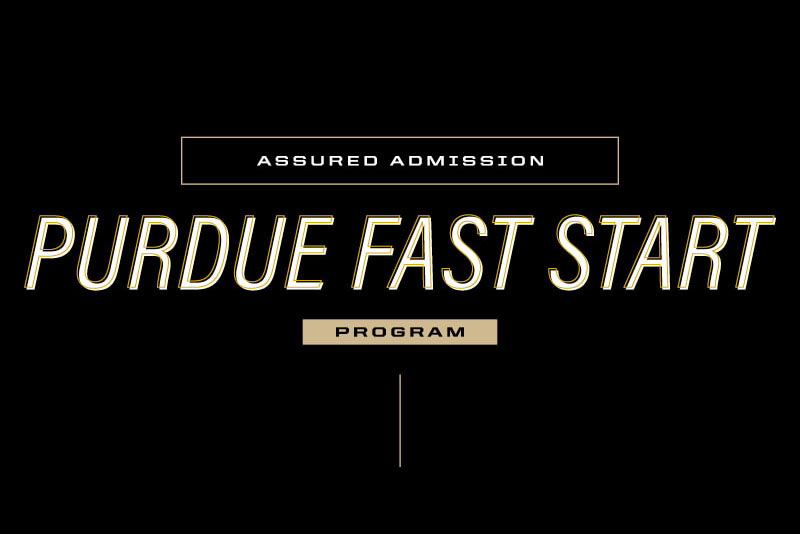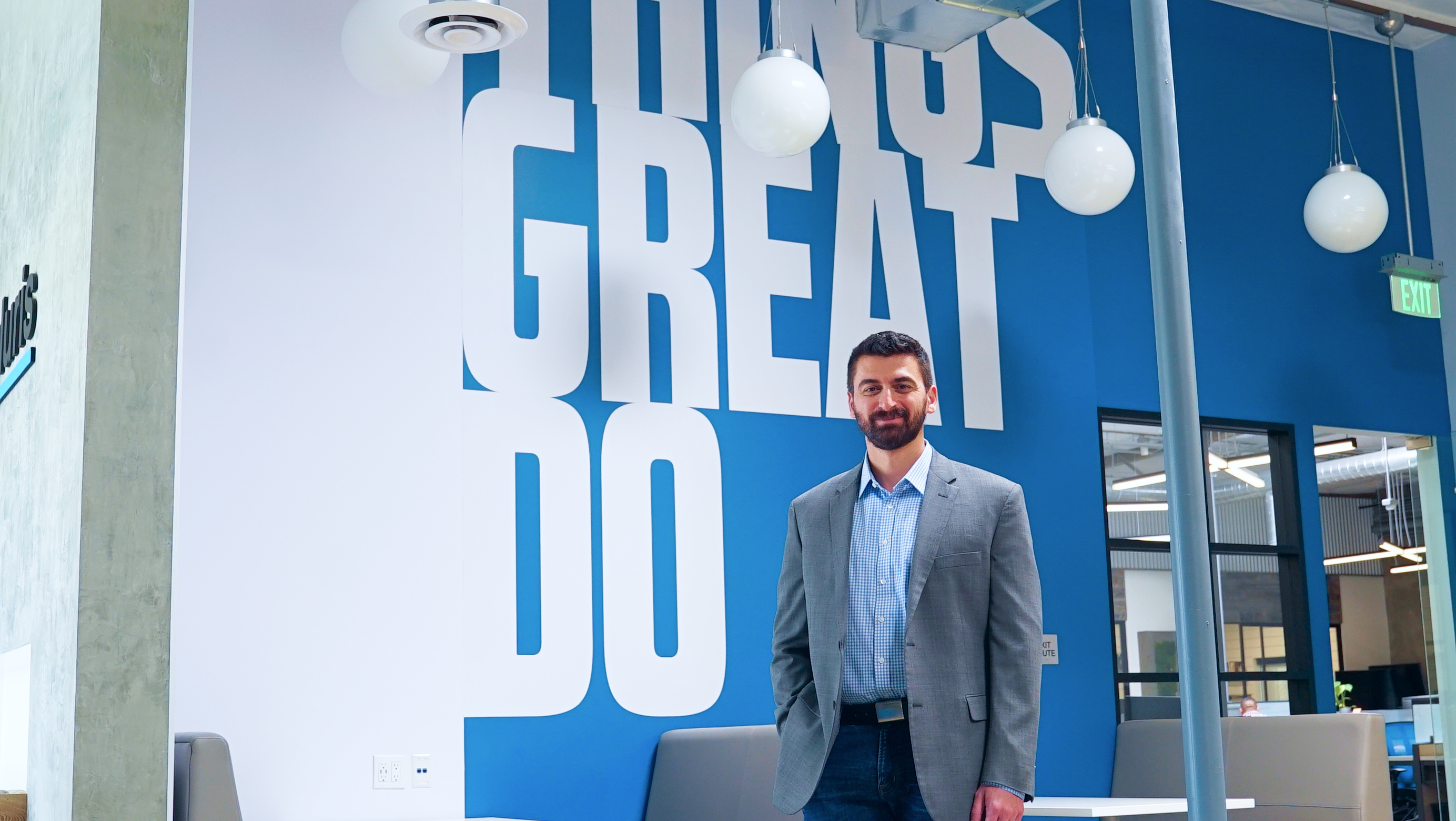
Doing the Business of Law - Alumni find enriching roles in the legal profession
Krannert students are known in part for their versatility, excelling in such diverse careers as consulting, manufacturing, entertainment, supply chain analytics, and entrepreneurship, among numerous others. With a growing number of students attending law school, you can also add attorney to that list. Here, we introduce you to a trio of alumni who have followed the path less traveled and forged careers in the legal profession.
Jacob Kamenir, MSIA ’00 — Director of Business Development, Simpluris
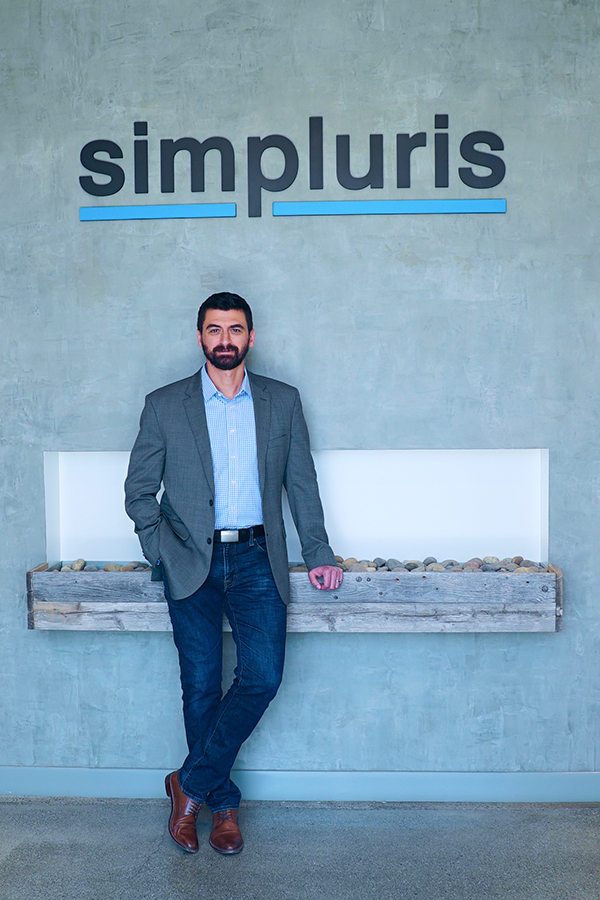
Army veteran and Krannert alumnus Jacob Kamenir has made several different stops on his path to director of business development at Simpluris Inc., which provides corporate, financial and legal administration services across the country.
The journey began with his arrival in the United States as a Soviet refugee, which gave him a unique perspective that remains to this day.
“It was one of the reasons my brother and I both joined the Army. It sounds very old fashioned, but we looked at it as a debt of honor. The United States had absolutely no reason to take us, but it allowed us to come in, protected us and gave us the opportunity to advance. I felt that I had to serve.”
During his military career, Kamenir also became more interested in questions related to philosophy and social ethics law.
“When you come from a place like the Soviet Union, which collapsed while I was quite young, your thinking is on two levels,” he says. “You have a country that’s falling in on itself and another country that’s thriving. The connection to philosophy is looking at these complex systems of society and trying to figure out what makes one successful and another a failure. To me, law was always part of that. The other part of it was business strengths — particularly if you’re coming from a society where the government tries to have five-year plans for everything versus something as dynamic as we have in the United States.”
It was also during his five years in the Army when Kamenir learned about Wabash College, a small liberal arts institution in Crawfordsville, Indiana, where he could pursue such questions with vigor. After earning his BA in philosophy in 1999, his next leap was the one-year MS in Industrial Administration (MSIA) program at Purdue’s Krannert School.
“I was 27 when I finished my undergraduate degree,” he says. “That’s seems very young to me now, but at the time, I was acutely aware of the fact that people I had graduated with had already moved forward, and although I wouldn’t give up my military experience for anything, I was at a critical time in my life. There was definitely an advantage to doing in one year what would normally take two, so I chose the MSIA program out of the other offerings at Krannert.”
Although law school remained a keen interest, Kamenir started a business career first. “I’ve always been interested in technology, so I worked for a number of years as a technology consultant at what was then Andersen Consulting, now Accenture, and on my own,” he says.
In 2007, Kamenir returned to the legal track and earned a JD from the William Mitchell College of Law in 2010. He then spent more than three years running his own firm before taking a job as an account executive with Thomson Reuters, where he eventually transitioned from the legal division to a role in sales. In 2020, he joined Simpluris.
Simpluris was looking for someone with a sales background who also had a business background as well as a legal and tech background,” he says. “They wanted someone with specific skill sets because they had a specific plan, and that confluence was exciting to me.”
In his current position, Kamenir partners with internal stakeholders to develop custom, individualized programs to address even the largest, most complicated legal administration issues they may be facing. Among the tools he draws upon from his time at Krannert is data analytics.
"What I focus on is class action administration, which almost everyone has had a contact with even without knowing it,” he says. “A class action administrator acts as a neutral third party that makes sure all the proper class members are notified, which is actually a fairly complex system that’s undergirded by analytics. You are creating a data model based on the information that you have. Then you present the results of your expectation services in reply to the judge and say, ‘This is reasonable effort because...’
When we get one of these cases, we have a data analytics team that turns the raw information into something usable, analyzes it, and cleans it up. As we go through the process, the attorneys can log into a dashboard that will show them at a granular level everything they need to know.”
For Kamenir, the most interesting thing about class action is that each one of them is completely different — and so are the data models used to guide its administration.
“You might have a wage-an-hour situation where you know exactly who the people are, have direct contact information for them and know when, where, and how,” he says. “In contrast, there might be a situation where the class action is about pet food and you don’t know who bought the product. It’s a completely different question of how to reach these people. You have to get very creative and show step-by-step that what you did was reasonable because of the analytics.”
Given his non-traditional career path that now merges multiple disciplines, Kamenir advises current students to keep their options open. "Don’t be afraid to take the side roads, because a lot of the most rewarding things you may do in your career are going to be those unexpected little things that popped up and you decided to take a risk on," he says.
Courtney Kanzinger, BS Economics ’07 — Counsel, Scannell Properties
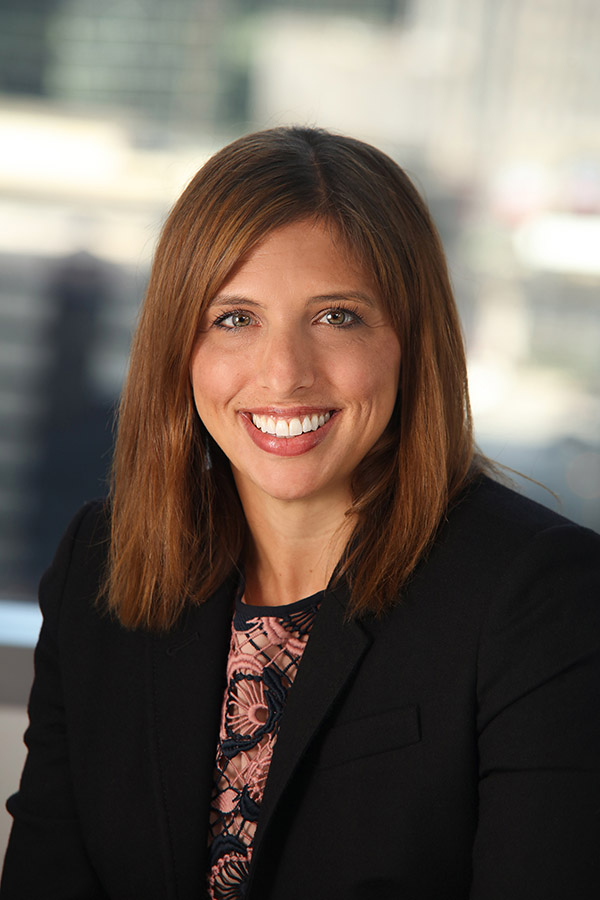
Krannert alumna Courtney Kanzinger, counsel for Scannell Properties in Indianapolis, didn’t come to Purdue to lay the foundation for law school. In fact, she began her first year in a different college before transitioning to the School of Management to study economics.
“I started out at Purdue with pharmacy my first semester because I liked the flexibility and work-life balance that a retail pharmacy position could provide,” Kanzinger says. “I was good at chemistry, but I just wasn't happy. So I switched over to Krannert because I loved economics in high school and wanted to do management long-term.”
Kanzinger, who graduated in 2007 with a BS in Honors Economics, began her career at Morgan Stanley as an operations analyst. “It was a great time to be in operations,” she says. “Morgan Stanley used to have the second largest physical jet-fuel trading operation in the world, so my job was basically playing battleship. I had to watch the fuel come across the ocean in the tankers and make sure it arrived on time.”
Still, Kanzinger hadn’t found her niche, so she detoured to the Robert H. McKinney School of Law at Indiana University. “I didn't love the East Coast. It was expensive, it was hard to meet people, and I was used to Midwestern values. I decided to apply to law school and deferred my admission for a year,” she says.
“I didn’t choose a straight-line approach to get where I am today, but I think having a background in economics and management really set me apart,” Kanzinger says. The analysis and critical-thinking skills she learned at Krannert were useful to her when going through the Socratic method at law school, and the public speaking experience she gained during her time at Purdue was also critical.
“The fact that I’d worked in the real world for a year before coming to law school helped a lot, too. It was useful having some corporate experience to bring to the table when reviewing case law and seeing how things actually work from a practical perspective. So much of what I do is taking ivory tower, best-case scenario thinking and applying it to the real world. What are the real issues of how we make this work in practicality? I think that my time at Purdue really helped me in that regard.”
She also learned quickly that she didn’t want to be a courtroom trial attorney. “I wanted to do transactional law and be on the business side, which is why I’m in real estate now,” says Kanzinger, who spent nine years working for various real estate and property firms before assuming her current role at Scannell Properties.
“We specialize in industrial projects and have a suite of national clients that we do build-to-suit work for,” she says. “We are involved in all aspects of the real estate development cycle. Our developers find land, whether it’s farm land or an urban infill redevelopment situation, we start with a term sheet and negotiate the purchase agreement. Then we close on the acquisition of the land and the financing. We negotiate the leases, the construction documents and the dispositions. We're very hands-on, true-dirt attorneys.”
Kanzinger realizes she’s not a “poster child” for career planning, but believes today’s students should examine all the possibilities. “Don't limit yourself into one thing that you think you want to do,” she says. “Just work hard and be open to new experiences.”
Networking is another key. “I have never gotten a job from a formal interview,” she says. “I met the recruiters from Morgan Stanley in Harry’s Chocolate Shop over the lunch hour. I’ve met others while on an airplane. You never know where the next opportunity may come from.”
Pablo Puente, BSM ’13 — Senior Legal Counsel, Capgemini
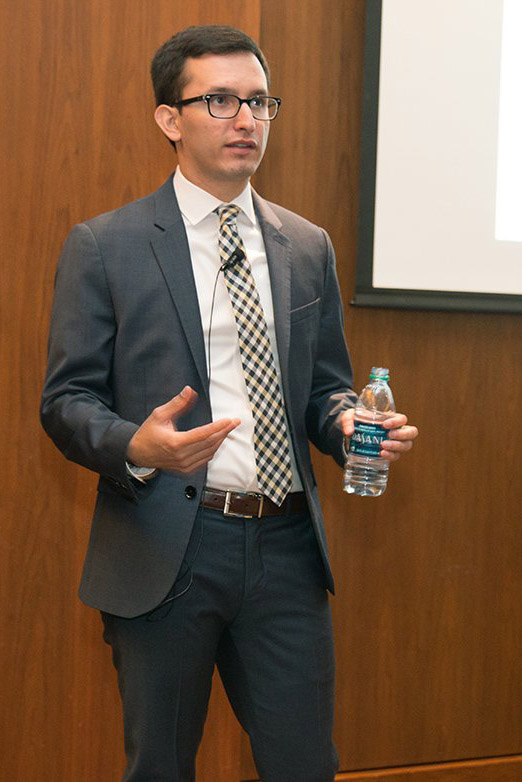
When Pablo Puente enrolled at Krannert in 2009, he says the decision was a “no-brainer.” Being in a position to make that leap was more challenging, however.
The journey actually began years earlier with his mother, who brought her family to the U.S. from Bolivia in 1998 in search of a better life. His father ingrained the values and morals his youngest son still holds today. The list of influencers continues with his four older brothers, two of whom also earned degrees from Purdue.
“They’ve all been great role models for me,” says Puente, who is also quick to credit Darren Henry, director of diversity initiatives at Krannert, who recruited him into the school’s Dr. Cornell A. Bell Business Opportunity Program (BOP). “He spends every minute of every day helping students who reach out to him,” Puente says. “He is the single most unselfish person I have ever met, and I was thankful to have him as a mentor.”
In addition to BOP, Puente was active in numerous student organizations and held leadership positions in the School of Management Employers Forum and the Purdue chapter of Delta Sigma Pi, a national business fraternity. He also served as a board member for the Student Organization Grant Allocation Board and was admitted into the Barbara Cook Chapter of Purdue’s Mortar Board class of 2013.
“I really enjoyed my time with student organizations, both on an academic level and a more personal level,” he says. “Most of my best friends and people that I'm still in contact with on an almost daily basis are people that I met through student organizations from both Krannert specific or just Purdue in general. I was a quite different person in high school, but Purdue really got a good drive out of me, really changed my perspective.”
Puente didn’t start at Krannert with his sights set on law school, however. Instead, he pursued a degree in finance. “By the time I entered my junior year, I realized that even though I enjoyed and liked finance, I couldn't see myself doing the same job for 40 years,” he says. “I just felt like something was missing and I was in a search of a new challenge.”
That’s when Puente met Cliff Fisher, clinical associate professor of management and coordinator for Krannert’s business law area. Knowing that law schools put an emphasis on grade point average and test scores, Fisher encouraged Puente to broaden his focus by changing his concentration from finance to general management.
That allowed Puente to expand his extracurricular activities and sharpen his dual interests in finance and business law through coursework in legal contracts, torts and crime, business process controls, financial analysis and negotiating. “I loved the mix of business and legal aspects, and from then on, going to law school was an easy decision,” he says.
Puente says that mix served him well at the Indiana University Maurer School of Law.
“I think I had a head start on the people who didn't study business or attend Krannert because I speak the lingo of business people,” he says. “Lawyers who have different backgrounds don't often have that connection and ability.
“A lot of people also think that when you become a lawyer, you're no longer doing math, or you're no longer looking at data and crunching numbers,” he says. “I think that's true to a certain extent, as I'm usually not the person who's the analyst of the team, but I still need to have a good understanding of the underlying data to draw conclusions and make decisions from a legal standpoint.”
After finishing law school, Puente entered the world of “big law” in Chicago, where he first joined the prestigious Mayer Brown firm. “I did securitization within their finance group for just under three years and absolutely loved it, but I realized that it was something very niche and I didn't want to pigeonhole myself,” he says. “I then moved to another large law firm in Chicago, Sidley Austin, to get a bit more broad practice.”
After five years working with traditional law firms, Puente decided to take his skills in-house as senior legal counsel at Capgemini, an IT consulting firm.
“There are a couple of things that I was searching for that you just can't find while working at a law firm,” he says. “One of those is working with business people on a day-to-day basis. In the law firm world, I have calls from here and there, but the partners are really the ones dealing with the clients on a day-to-day basis.
“When you go in-house to a company, you’re in constant communication with the business people. Whenever Capgemini is going to send consultants to a client, for example, I'm the one who reviews, drafts, negotiates, and closes the deal in terms of the documentation.”
While becoming a lawyer is an individual decision, Puente encourages students who are considering the profession to reach out to as many people in the legal industry as possible.
“I didn't know a lot of lawyers, so it was tough for me to really find people to ask for guidance and advice,” he says. “I've now realized that lawyers, depending on what they practice, have a lot of different perspectives. My advice for students is to ask a lot of questions from a lot of people, and not take anything for granted.”


